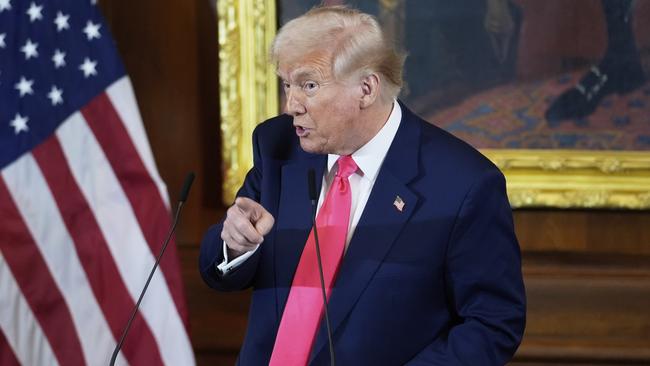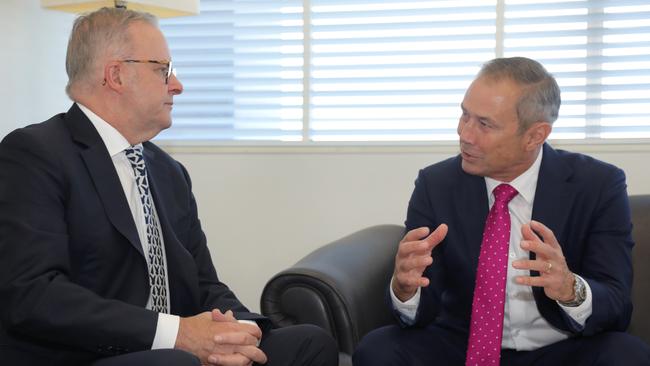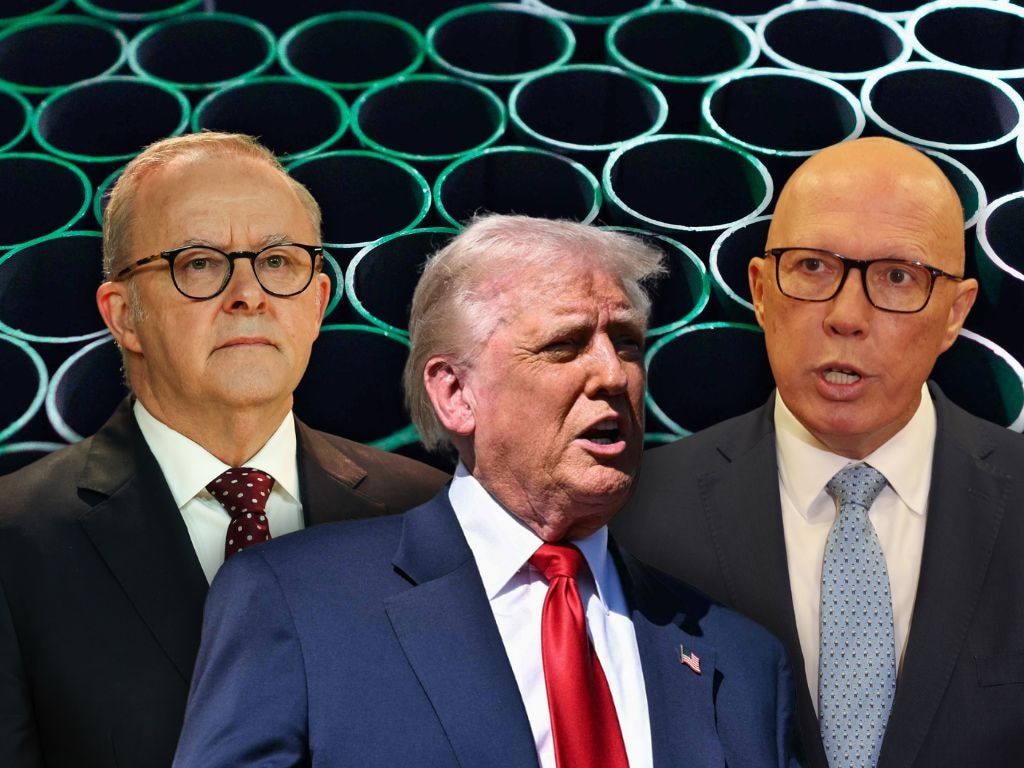
America was never going to grant Australia an exemption. And no world leader who met with Trump was successful in winning one.
It was a big fail for everybody on this count and Albanese would have been no different.
The brutal laws of politics dictate that, had Albanese made such a trip and pleaded his case to Trump in the White House, the failure to secure an exemption would have become even more damaging for him and the government on the eve of an election.
Such an outcome would have worked to the political advantage of the Coalition which was, understandably, pushing the Prime Minister to go.
While Peter Dutton has been critical of Albanese for not winning the exemption, imagine how much more effective his attack would be now had the Prime Minister made the visit only to be met with the same US decision. It never made sense for Albanese to rush a meeting with Trump.
But there were other reasons why Albanese was right to bide his time. Look what happened to Volodymyr Zelensky – one bad meeting and Washington suspended military aid and intelligence sharing with Kyiv. Everyone knows that Trump is unpredictable. And there are a host of policy differences between Labor and Trump that the US President could choose to make an issue of.
If he remains Prime Minister after the election, Albanese will need to navigate this political and policy divide by trying to develop a strong and effective personal relationship with Trump.
This will be a difficult challenge and a key test for Albanese on the world stage, but embarking on such a project weeks before calling an election would have been politically unwise.

Senior fellow at the Hudson Institute, John Lee, told The Australian the problem for Albanese was “that fundamental policy elements associated with his government are at odds with Trump’s policies and agenda: from Australia’s positions in the Middle East to lack of spending on defence, emphasis on renewables, and stances on identity politics and social causes”.
“Even on the issue of tariffs, Albanese has framed it as a choice between free trade and protectionism whereas Trump sees general tariffs as critical for the reindustrialisation of America,” he said.
“Albanese is neither prepared nor well equipped to conduct this conversation with Trump. For these reasons, a face-to-face meeting would have achieved little at best and expose serious differences between the two leaders at worst.”
Mr Lee said the difficulty would persist “beyond the issue of tariffs”.
“If he remains prime minister, Albanese will eventually have a face-to-face conversation with Trump and these differences are serious and will remain.”







Anthony Albanese was right not to rush off to Washington ahead of the election to lobby Donald Trump for a free pass from his sweeping steel and aluminium tariffs.